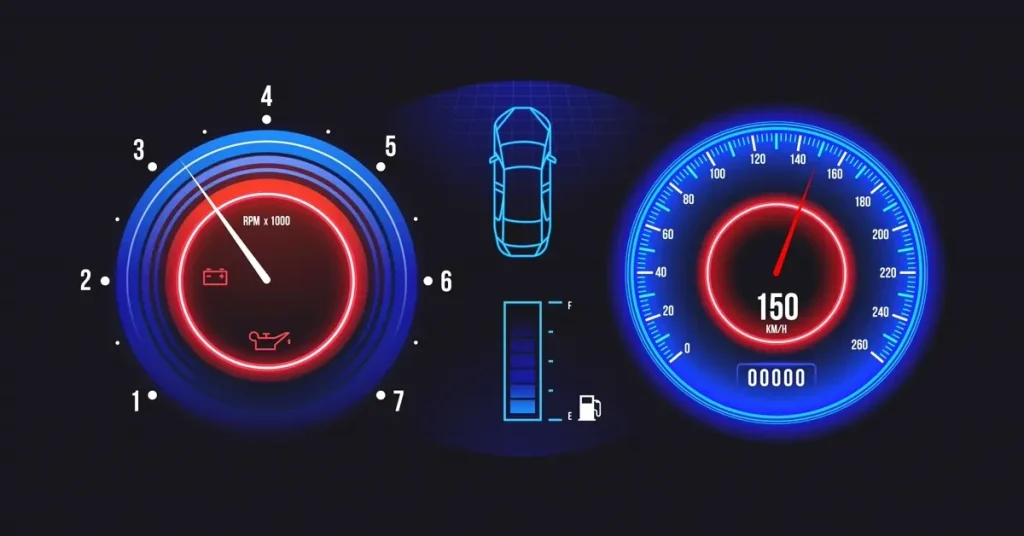Can You Correct A Digital Odometer?
Correcting a digital odometer may sound like a simple technical job, but in modern vehicles, especially those manufactured after 2018 it’s far from straightforward. Whether you’re buying a used vehicle, performing repairs, or simply trying to understand your options when dealing with mileage data, this guide will break down everything you need to know.
From how digital odometers store data to the increasing complexity of correcting them, and why Mileage Blockers are becoming a safer and more practical solution!
What Does “Correcting a Digital Odometer” Actually Mean?
Odometer correction refers to the process of adjusting the mileage displayed on your vehicle’s dashboard. There are many legitimate reasons why someone might want to do this:
- Replacing a faulty instrument cluster
- Repairing a malfunctioning dashboard display
- Restoring correct mileage after ECU or component replacement
- Re-calibration of a speedometer due to parts being worn or different sized wheels being changed.
But it’s important to note: correcting a digital odometer to mislead a buyer or falsify mileage is illegal in the UK and most other countries.
How Do Digital Odometers Work?
Unlike older mechanical odometers that relied on gears and cables, modern digital odometers rely on electronic systems and sensors. These systems communicate with the Electronic Control Unit (ECU) and other modules to track and store mileage.
In older vehicles, changing the mileage could be done by reprogramming a single chip or manipulating the dashboard. But today’s vehicles especially those built after 2018 store mileage across multiple systems.
In modern cars, mileage may be stored in:
- The ECU (Engine Control Unit)
- The BCU or BCM (Body Control Unit)
- Transmission Control Module
- ABS Unit
- Instrument Cluster
- Gateway Modules
- And sometimes, third-party cloud-based telematics
This makes traditional correction methods increasingly unreliable and potentially detectable.
Why Correcting a Digital Odometer Is Increasingly Difficult After 2018
Manufacturers have beefed up security and data storage in recent years. Cars built from 2018 onward typically store mileage in multiple locations, not just the instrument cluster. That means:
- Even if the dashboard mileage is changed, it may still be stored (and retrievable) from other control units.
- Diagnostic tools can spot inconsistencies between modules and trigger warning flags during inspections.
- Some newer vehicles will log any data manipulation attempts permanently in the system’s event logs.
In other words: digital odometer correction on modern cars is both highly technical and increasingly traceable.
Can a Digital Odometer Be Corrected?
Yes technically, it is still possible. Specialist diagnostic equipment can be used to adjust mileage figures, especially for legitimate purposes. However, because mileage is spread across different systems, any correction must be thorough and done module-by-module.
But here’s the catch:
- It’s risky.
- It’s not always accurate.
- It can damage your vehicle’s software if not done properly.
- It may void your warranty.
- And above all it’s illegal to use it to deceive.
Why Mileage Blockers Are a Better & Safer Alternative?
With the complexity of modern digital odometers, many are turning to Mileage Blockers instead.
So, what’s the difference?
- Odometer correction tools change the mileage already recorded.
- Mileage Blockers stop mileage from being recorded in the first place.
Here’s why mileage blockers are a smarter solution in many cases:
- Mileage Isn’t Stored at All While Driving: Mileage Blockers prevent data from reaching the control units. So unlike correction tools, there’s no risk of leaving traces or inconsistencies between modules.
- Fully Undetectable High-quality blockers like those from Autotech UK are undetectable by dealership diagnostics or tools like Carly. Once removed, there’s no record of them being installed.
- Works Seamlessly With Modern Cars Our mileage blockers are compatible with the latest vehicle platforms and complex CAN-Bus systems, including BMW, Mercedes, Audi, VW, Porsche and many others.
- Legal When Used Responsibly Mileage blockers are 100% legal for off-road use, such as:
- Vehicle testing
- Track days
- Dyno tuning
- Fleet demonstration vehicles
Is It Legal to Correct or Block Mileage?
This is where ethics and legality come into play.
In the UK:
- Odometer correction is legal only when used for legitimate reasons (e.g. repair or replacement).
- Mileage blockers are legal to install and use for off-road, testing, and tuning purposes.
- It is illegal to misrepresent a vehicle’s mileage when selling it or using it in official documentation (e.g. MOTs or finance agreements).
You must disclose the use of a mileage blocker when selling your vehicle, especially if the displayed mileage doesn’t reflect actual use.
Failing to disclose this could result in:
Vehicle return or refund requests
Fines
Legal action
When Should You Consider a Mileage Blocker?
Here are some real-world examples of when a mileage blocker makes more sense than correction:
- You’re regularly using a vehicle on a racetrack and don’t want wear-and-tear mileage showing up.
- You’re testing fleet cars before release and don’t want the odometer tracking demo miles.
- You want to keep track of road-only mileage and exclude transport or off-road use.
- You’re transporting a car across the country or abroad and don’t want unnecessary mileage logged.
In all these situations, stopping mileage from being recorded is a cleaner, safer, and more transparent solution than adjusting it afterwards.
Why Choose The Award Winning Autotech UK For Your Mileage Blocker?
At Autotech UK, we specialise in high-quality, plug-and-play mileage blockers for over 500 vehicle models. Our modules are:
- ✅ 100% undetectable
- ✅ Easy to install (no soldering or cable cutting)
- ✅ Compatible with the latest 2024 – 2025 vehicles
- ✅ Backed by step-by-step instructions and expert support
- ✅ Legal for off-road use with full transparency
We’ve helped thousands of customers across the UK and worldwide manage their mileage safely, legally, and effectively.


Leave a Reply